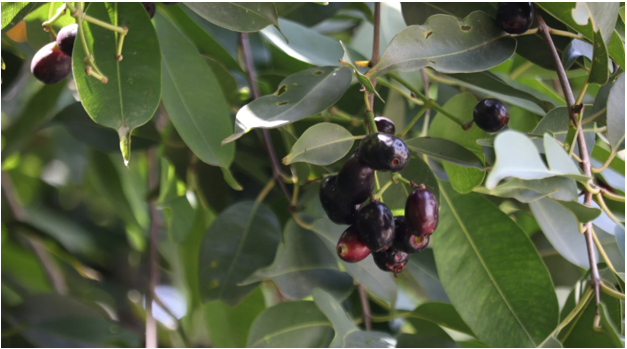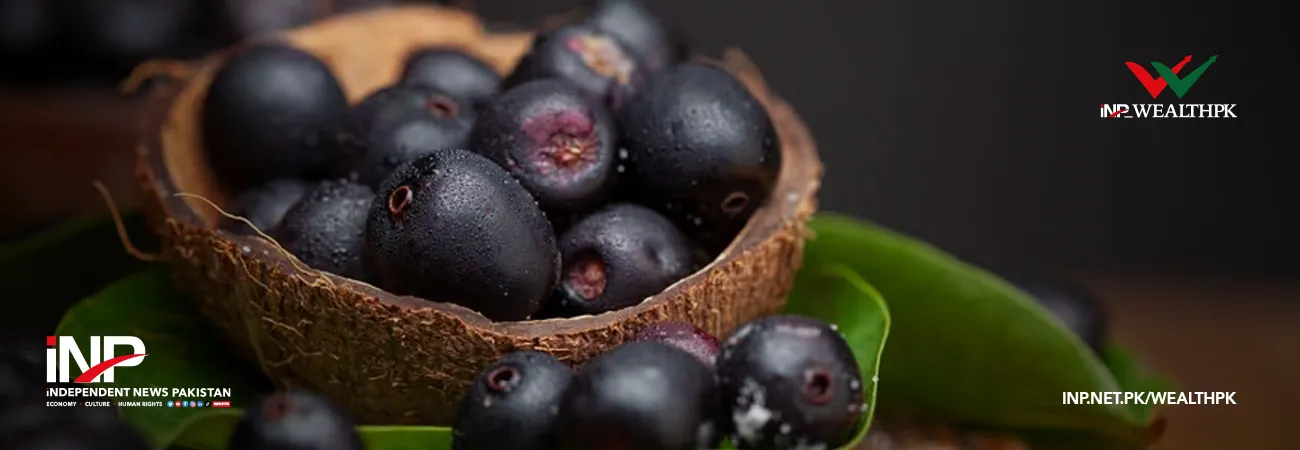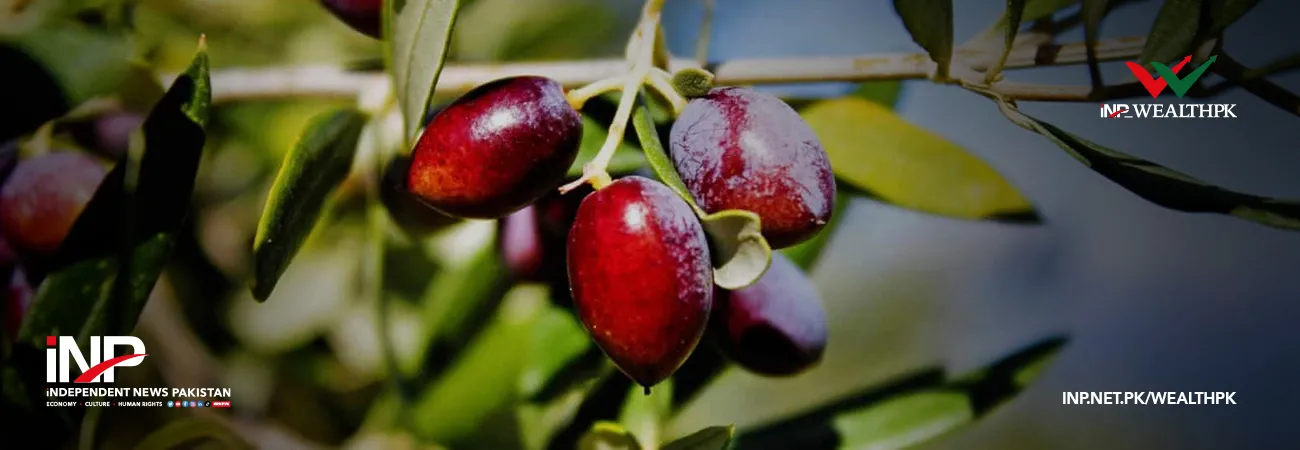آئی این پی ویلتھ پی کے
Muhammad Saleem
Value addition can help jamun become Pakistan’s next major fruit export. “Jamun, grown in the fertile lands of Faisalabad, is not only a nutritious fruit but also possesses medicinal properties, a unique taste, and is a popular summer treat,” said Muhammad Naeem, a farmer. “It is now high time we introduced jamun as a major economic, medicinal, and agri-tourism crop,” he told WealthPK.
“We must stop looking at jamun as a mere wild or ordinary fruit and instead put it on the map as a Pakistani brand. Its value-added products should be developed, and jamun orchards should be used to promote agri-tourism,” he suggested. He said that Chak 385 and 386-GB of Samundri have been unofficially declared ‘Jamun Villages’. “With fertile land, a favourable environment, and hundreds of jamun trees, these villages have become natural tourist destinations,” he added.
“Scores of villages in Samundri are producing more jamun than anywhere else in Pakistan, and during the harvest season, hundreds of trucks shuttle back and forth to transport the fruit to markets across the country,” he said. Mohsin Abbas, a horticulturist, said that to highlight the importance of jamun and introduce a new dimension to agri-tourism in Pakistan, a festival was also organised in Samundri, where various stalls displayed local jamun products, including a variety of dishes and beverages made from the fruit, giving visitors a taste of the town.
“Farmers also sold fresh jamun directly from their farms, allowing them to cut out the middlemen through marketing initiatives,” he added. “We can earn foreign exchange by exporting value-added products of jamun, including syrup, jam, vinegar, and toffee, as well as jamun powder for diabetes and other supplements,” he said.
“By promoting jamun products, we could also enable farmers to enhance their income.” Abbas suggested setting up agricultural market stalls, e-shops, and local outlets to attract consumers to agricultural products. Bilal Ahmed, a trader who transports fruit to northern areas, told WealthPK that every year he earns a handsome amount by supplying jamun to traders in Battagram, Batkhela, Dir, Malakand, and other adjoining areas of Khyber Pakhtunkhwa province.
“During the jamun season, we travel frequently between Faisalabad and northern areas to ensure timely supply. However, we are unable to tap the true potential of jamun because of the lack of supply chain and modern processing units,” he said. “Jamun is a soft and perishable fruit. Without cold storage and proper packaging, we cannot preserve it for long and it spoils quickly. These challenges are not impossible to handle. “In the absence of facilities, we are forced to sell it within Pakistan instead of exporting it,” he explained.
Ahmed further said that they have made multiple attempts to contact exporters and launch joint ventures to ensure jamun exports. “We need international certifications for jamun-based products to enter European and Middle Eastern markets,” he said. “If the government provides farmers with training, processing facilities, and supportive export policies, jamun of Pakistan can become as popular as mangoes or oranges in international markets,” he stressed.

Credit: INP-WealthPk











